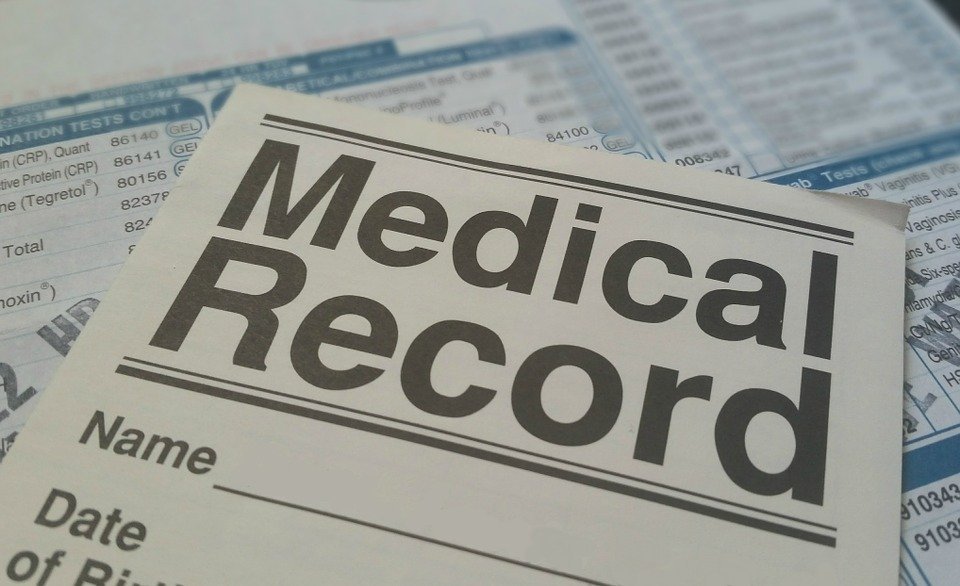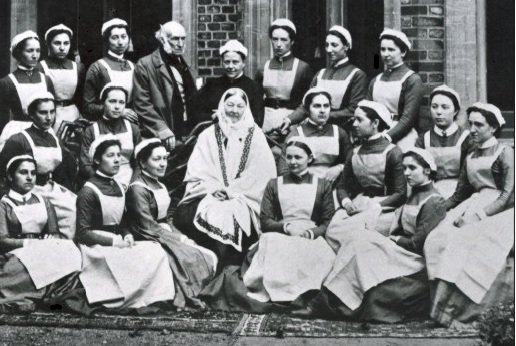Why an RN-to-BSN with No Prerequisites Can Hurt Your Nursing Career

Nowadays, most nursing schools want you to have a basic set of skills and theoretical knowledge before admission. To get into a top nursing program, you must gain a number of academic credits in core General Education subjects, such as English, Statistics, and Human Anatomy, in the form of prerequisite courses.
Like Nightingale, some colleges will offer you the chance to complete the BSN prerequisites during your course. But, not taking these courses or choosing a no-prerequisite nursing course can harm your education, skills, and career in the long run.
Let’s find out what education prerequisites are typically requested by a school of nursing, why it is important to gain them, and what your options are when you don’t yet have all of the necessary prerequisites.
What are Nursing Prerequisites?
A nursing prerequisite or ‘prereq,’ as they are often called, is a class that you have to take before you can attend higher-level classes in a college or similar institution.
Since many college-level classes involve complex problem solving, learners must have some anterior knowledge, gained either through GE (general education) courses or through prerequisite courses.
Prerequisites for nursing admission differ with each program depending on the institution and they can be an indicator of the course quality and difficulty. In general, the courses you’re required to take will also depend on your academic profile.
Why Do We Need Nursing Prerequisites?
The best BSN programs will always have admission prerequisites.
This allows lecturers to explore topics in more depth and approach complex issues instead of using class time to teach basic notions. In this sense, the breadth of BSN prerequisites is a good indicator of a course’s quality and is a factor that should be considered alongside the course’s length and affordability.

Another role of prerequisite courses is to ensure a level playing field for learners so that all participants understand the basic concepts they have to work with during class.
For example, if you are starting a class that involves making psychology experiments, you need to be familiar with a variety of social science research methods, as well as the ethical codes of practice applicable. The best nursing programs set a high standard in their admission procedure so they can focus on teaching advanced skills.
What are the Typical Nursing Degree Requirements?
If you wish to pursue nursing as a career, you must meet the minimum entry criteria, in addition to completing the nursing program prerequisite courses.
The usual BSN requirements include core courses which must be taken in high school (such as English and Math) but also require a minimum entrance grade (GPA) needed for enrolling in a BSN course.
This is an example of what the standard nursing program entry requirements can look like in the USA*:
- Minimum scores on SAT or ACT
- A GPA (grade point average) between 2 and 3.25, where 0 is the minimum and 4 is the maximum
- Three years of math (algebra II and geometry)
- Three years of science subjects (chemistry and biology)
- Four years of English
- Two years in any other foreign language
For the RN-to-BSN degree, proof of current, active unencumbered registered nurse (RN) licensure is also required.
*may vary by state and college.

Can I enroll in an RN-to-BSN Program without a license?
The RN license is an obligatory requirement for admission because the RN-to-BSN course is structured with the aim to develop the abilities and knowledge of working nurses. You must, therefore, provide evidence of your status as a registered nurse.
Can I enroll in the RN-to-BSN without experience?
Yes, you can. If you only have your RN license but didn’t get a chance to practice yet, you’ll have the opportunity to learn fundamental nursing practice skills during the Community Health Project and the Capstone Project (part of the online RN-to-BSN degree program). This will provide you with sufficient clinical hours of experience and you can complete it in your local community, without needing to come on campus.
What are the GE Prerequisites for Nursing School?
As already mentioned, BSN and RN-to-BSN prerequisites will vary, but let’s have a look at an example of nursing admission subjects from Nightingale College, to help you understand how these nursing prerequisites will help you during your education and career.
Remember that you only have to take extra prerequisite courses when you don’t have enough credit in your General Education (GE) courses to transfer to your BSN program. At Nightingale College, a total of 48 GE credits in 5 areas are required for the BSN degree, with a minimum number in each of the 5 general education areas.
Most of these GE courses are taught in high school or at community colleges. In order to be eligible for credit transfer at Nightingale College, you must get a minimum grade, as follows:
- A minimum grade of “C-” must be earned in all courses, except Human Anatomy, Human Physiology, Mathematics, English, and Pathophysiology;
- For all the excepted courses above, a minimum grade of “B-” must be earned for transfer of credit.
Although there is no minimum GE credit score required for admission at Nightingale College, you have to get a combined total of 48 semester credits of general education and elective courses to graduate.
Up to 21 of these semester credits can be completed during the RN-to-BSN program. When you do not have the minimum 27 credits upon admission, you may extend your enrollment in order to fulfill all requirements.

How Long are RN-to-BSN Programs?
You can complete an (online) RN-to-BSN in just 3 semesters when you have the minimum general education prerequisites, or you can extend your enrollment if you need more time to catch up (usually resulting in 5 semesters).
Let’s have a closer look at the six areas of knowledge from which you can choose your courses for GE credit and the mandatory subjects for nursing school graduation. We will look into the importance of each course and explain why successful completion will put you at a great advantage in your nursing career.
All courses are offered at Nightingale and are awarded 3-5 credits unless otherwise specified.
Compulsory Nursing College Subject Requirements & Why You Will Actually Need Them in Your Nursing Career
Physical & Life Sciences – minimum (min.) 15 credits
For a career in nursing, it’s unsurprising that the most important nursing school subjects are in Physical & Life sciences.
Mandatory subjects such as Human Anatomy (4 credits), Human Physiology (4 credits) and Pathophysiology help you understand the basic functioning of the healthy human organism at a chemical and physical level and you also have to learn about the effects of pathogens on the human body.

Without this fundamental knowledge, you cannot effectively become a nurse. These three essential subjects make up the cornerstone of nursing practice and you must master them in order to achieve the desired results in your advanced courses. Any baccalaureate-level nursing course which does not require a minimum grade in these subjects for admission should be carefully considered.
Can I take an RN-to-BSN without Chemistry?
To achieve the minimum of 15 credits needed in Physical & Life Sciences, in addition to the above-mentioned mandatory subjects, you have to pick at least one other elective from this area of study (either in high school or at college). As you get to choose between Biology, Chemistry, Environmental Science, and Physics, you can, in fact, complete the degree without taking Chemistry. Other life science subjects may also be considered for GE credit transfer.
English & Composition – min. 6 credits
Nurses have to generate an array of documents every day, whether it’s an admission form or daily patient reports. As a nurse, it is important to be able to communicate clearly and always be up to date with the legal requirements and best practices in record-keeping.
Studies show that one of the leading causes of preventable death in hospitals is poor communication. Any mistakes or uncertainties in charting a patient’s progress can pose a risk to the patient’s safety, therefore excellent writing skills are critical.
For this reason, at Nightingale College, Technical Writing is a mandatory subject. Other electives, such as English Composition, Academic Writing, Creative Writing, Communications or Poetry/Fiction may be taken to fulfill the minimum credit requirements.

Technical Writing is a subject that trains the ability to explain complicated concepts and processes in understandable terms, based on the writer’s purpose and audience – whether this is a doctor, a patient, or other medical personnel. In coursework, technical writing skills apply to documenting procedures based on concepts learned through study.
Mathematics for Nursing – min. 6 credits
As a nurse, you will have to make simple and complex calculations on every shift, whether you’re administering medication our assessing a heart rate. It is therefore very important to develop an agile and precise mind that can quickly convert quantities and understand data in context.
Although Math as a subject may seem daunting to many who disliked it in school, there is no reason to be concerned about your previous results. The fact that you will use all of your theoretical knowledge in practice will make it easier for you to understand mathematical concepts and formula.
Can I take an RN-to-BSN without statistics?
Because it is an integral part of the nursing profession, statistics is considered a fundamental subject which must be taken and passed with success by every enrolling learner. This doesn’t mean you must become a statistician, but you do have to develop a working knowledge of statistics, as it will help you understand research papers and improve practices. Since it’s such an important part of the degree, it’s unlikely that you’ll find any quality RN-to-BSN program that doesn’t require statistics.
Florence Nightingale, who is known as the founder of modern nursing, carried out pioneering work to improve care practices and used statistics effectively to save lives.

Florence Nightingale (middle) in 1886 with her graduating class of nurses from St Thomas’ – via Wikipedia
More simply put, statistics help us understand and predict events based on other known events.
Some of the most common uses of statistics in nursing are
- In epidemiology, to examine the relationship between exposure and disease incidence;
- In daily nursing practice, to identify and improve the efficiency of commonly used methods;
- In intensive care or daily practice, to analyze a trend in the vital signs of a patient.
To complete all the necessary general education credits in this subject area, you will also need to take one of the following electives: Intermediate Algebra, Calculus, Trigonometry, or Mathematics.
Can I take an RN-to-BSN without Math?
Most courses will require you to pass Math either in high-school or in the form of a prerequisite course. It’s not advisable that you skip this subject because, without it, you will find it much harder to adapt to your job as a nurse. The Algebra you learn in nursing school is not at an advanced level (not comparable to the Math you would study for a Physics degree), so it’s very doable as part of your degree.
Elective Subject Areas in Nursing Education
Human Behavior & Social Sciences – min. 6 credits
Nursing is a profession that requires constant interaction with other people, therefore it is important to understand certain behaviors in order to react to them in a responsible and informed way, ensuring that you are providing the best possible care.
There are no mandatory subjects in this area, so you are free to choose between the following electives, according to your areas of interest: Psychology, Human Growth & Development, Sociology, Abnormal Psychology, Cultural Anthropology, Organizational Behavior, Macroeconomics, and U.S. History.

Bear in mind that the subjects you choose for undergraduate study can have a long-term influence on your career, especially if you are thinking of pursuing a Master’s.
For example, if you know that you would like to take up an administrative role in the future, it would make sense to consider a subject such as Macroeconomics or Organizational Behavior at a BSN level.
Humanities & Fine Arts – min. 6 credits
As you would probably expect, there are no mandatory Humanities and Fine arts subjects in most nursing courses, although it’s not unheard of an institution to require its nursing candidates to take a subject such as Theological Studies.
If you want to deepen your understanding of theology, ethics, or other philosophical questions such as the mind/body problem, or the legitimacy of euthanasia, you may want to consider an elective such as Religion, Introduction to Philosophy or Western Civilization.
Grasping complex philosophical issues can be extremely useful in improving nursing practices. For example, understanding philosophical questions which extend to matters of life and death can help nurses deliver exceptional care in areas such as palliative or geriatric care.
Upper-Division Elective(s) – min. 3 credits
Finally, if you have completed most of the GE requirements and want to advance your learning, you may choose to pursue one or both of these upper-division electives: Nutrition and Microbiology.
Can I Take a Nursing Course (RN-to-BSN) Without Prerequisites?
If you’ve already started researching nursing schools without prerequisites, you will have noticed that the minimum nursing course requirements can have significant variations.
Because the length and quality of courses can also vary among colleges, a good idea would be not to ask which nursing program is the easiest to get into, but rather, which nursing school can help you round up your skills if your GE prerequisites are incomplete.
The reason for this is that no-prerequisite programs which guarantee you a spot on the course cannot, in fact, guarantee that you will get hired after you receive your diploma.
How important is accreditation in RN-to-BSN programs?
When choosing your nursing college, thoroughly research your course and always find out if the institution is accredited before enrolling. Without accreditation, your graduation diploma may not be accepted when you wish to sit for the NCLEX exam. The nursing program should receive accreditation from:
- The Commission on Collegiate Nursing Education (CCNE) or
- The Accreditation Commission for Education in Nursing (ACEN)
Also, note whether the course is offered by a public or a for-profit institution. Even when you’re paying more for a degree, you still have to check that your course is not missing essential GE components (like Human Anatomy & Human Physiology) that could mean you can’t get hired.
If there are no prerequisite GE credits for admission, you should be able to take co-requisite courses during the degree, in order to get the best possible preparation. Don’t try to avoid core subjects like Math, English, or Life Sciences – in the long run, this can hurt your career. Not only do the gaps in your knowledge mean that you are unable to perform at the level of your peers, but this can also disqualify you from admittance into further education.
Can I Take an RN-to-BSN Without Clinicals?
Upon your admission in an RN-to-BSN program, you will likely have already completed some practical hours as part of your RN licensure and/or job. If you are not currently employed as a nurse, then nursing clinicals will play a big part in growing your experience and improving your practice.
But, if you’re already working as a nurse, you may find it that more clinical hours are not really what you need, especially when balancing work, family and college life. In this case, you can pick a program with fewer clinical hours (but not zero).
At Nightingale College, you have the chance to focus your practice in a personal area of interest through the Community Health Project. This means that you don’t need to be on-campus to complete it. You can do it in your local community, having real impact through your work.
I’m Missing Some Nursing Prerequisite Courses, What Should I Do?
First off, don’t panic – you are not alone!
You can take prerequisite courses before starting your degree or even during college. If you don’t have the minimum GE credits and are completing them during your nursing course, you can simply take additional semesters to finish your degree, depending on how many courses you need to catch up on.
How Long Do Nursing Prerequisites Take?
At Nightingale, prospective learners who have the minimum 27 GE credits (out of 48) can complete the program, including the remaining 21 GE credits, in just 3 academic semesters (48 weeks). Those who complete all their GE credits during the course will be able to finish the RN-to-BSN in 5 semesters (80 weeks).
It’s always better to be well prepared than to finish your degree quickly, so don’t make time a reason to enroll in a non-demanding course. If you want to speed up your learning, you can choose to get your credits before enrolling, from another institution.
Where Can I Take Prerequisite Nursing Courses?
As already mentioned, one option would be to complete all your nursing education requirements during your college degree, meaning that you will take these courses at the admitting university.

If you want to pursue them in advance, you can take advantage of Advanced Placement (AP) courses, look for community college courses or even take them online.
In very competitive nursing programs, the number of GE credits earned by a candidate upon admission can be considered an assessment criterion, therefore, in some cases, you will be at an advantage if you get your GE credits before applying.
Whenever you choose to complete prerequisites in advance, you should contact your admitting institution to check which courses they accept for GE credit and from which institutions. This way, you can avoid putting yourself in the situation of having completed a course, only to find out later that no nursing college will accept it.
Can I Take Nursing Prerequisite Classes Online?
There are many education providers that offer nursing prerequisites online and it can be a very good option if you want to save time and work from the comfort of your own home. However, you should always do your research and make sure they are accredited and recognized by your admitting institution.
If you prefer the advantages of online learning compared to traditional classroom teaching, consider enrolling in an online RN-to-BSN course where you can also complete your GE credits as part of the degree.
The RN-to-BSN Program at Nightingale College is designed to further develop skills, reasoning, and attributes of licensed professional registered nurses. The RN-to-BSN Program curriculum is grounded in the American Association of Colleges of Nursing (AACN) Essentials of Baccalaureate Education for Professional Nursing.

RN-to-BSN Advice on Returning to School
Going back to school after a long time gives you the opportunity to identify those areas which you’ve always wanted to improve and is a chance to step back and look at your profession again from a theoretical point of view.
Don’t be afraid of picking up subjects that you disliked in school – this is a common thing returning nurses worry about, only to realize it wasn’t worth it. Instead of focusing on getting all As it’s better to use this time to bring your knowledge up to date and improve any weak subjects.
Nursing education can be challenging and it requires passion and interest for a variety of areas. The only way you can have a successful and rewarding nursing career is if you have a solid knowledge base, and what better time to develop it than in college.

